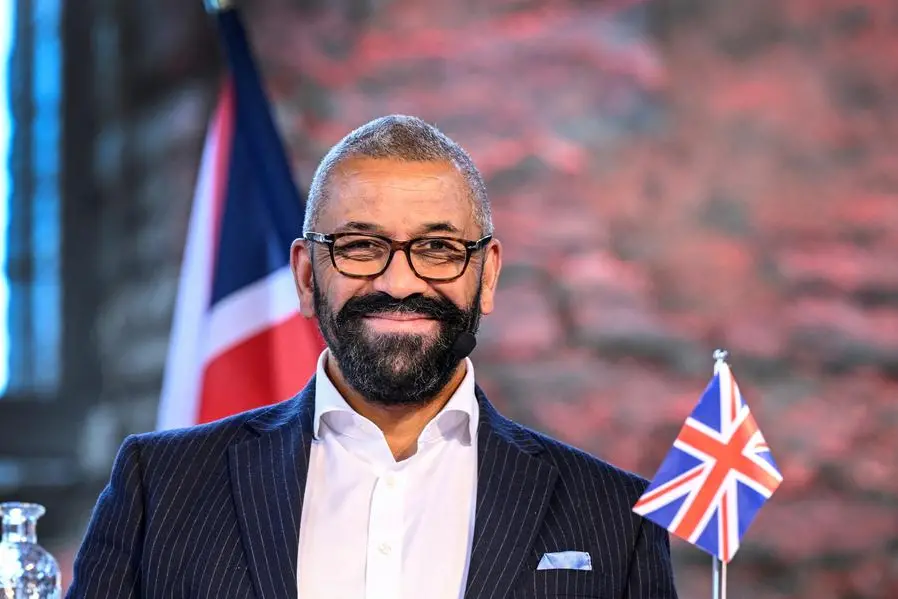PHOTO
British Foreign Secretary James Cleverly will make a long-awaited trip to China on Wednesday in a sign that relations between the countries are normalising after years of tensions over security concerns and alleged human rights abuses.
Cleverly will meet his Chinese counterpart Wang Yi, marking the most senior visit to China by a British minister in five years.
Britain is trying to improve ties with China after the relationship sunk to its lowest point in decades under former prime minister Boris Johnson when London restricted some Chinese investment over national security worries and expressed concern over a crackdown on freedoms in Hong Kong.
Cleverly said before his arrival in China that it would be a mistake to try to isolate the world's second-largest economy and engagement was needed in areas such as climate change, economic instability and nuclear proliferation.
"It is important we manage our relationship with China across a range of issues," Cleverly said in a statement. "China's size, history and global significance means they cannot be ignored, but that comes with a responsibility on the global stage."
Chinese foreign ministry spokesperson Wang Wenbin said it is "in the common interest" of both nations' peoples to develop relations.
Cleverly was forced to postpone a visit previously scheduled for July after the mysterious disappearance of then Chinese foreign minister Qin Gang.
The last time a British foreign minister visited China was when Jeremy Hunt travelled to the country in 2018.
Britain has made major shifts in its approach towards China in the past decade, moving from saying it wanted to be China's greatest supporter in Europe to being one of its fiercest critics, and now again trying to improve relations.
Under former prime minister Johnson, Britain attacked China's crackdown on freedoms in Hong Kong and Xinjiang, banned Huawei from Britain’s 5G network, and was frustrated by the perception that China did not tell the whole truth about the origins of the coronavirus pandemic.
Prime Minister Rishi Sunak, who took over last year, said in his first major foreign policy speech that the so-called "golden era" of relations with China was over, but there has been a number of visits by more junior officials to China in recent months.
Sunak's government is attempting to strike a complex balance between trying to neutralise security threats posed by China — such as banning some technologies — and maintaining or even enhancing engagement in some areas such as trade, investment and climate change. (Reporting by Laurie Chen and Andrew MacAskill; Additional reporting by the Beijing newsroom; Editing by Kim Coghill and Raju Gopalakrishnan)





















